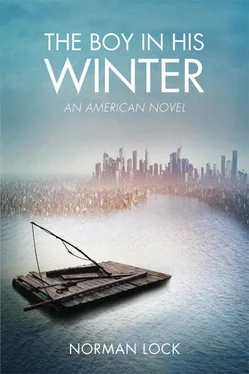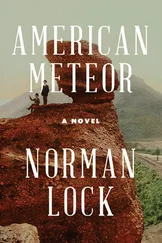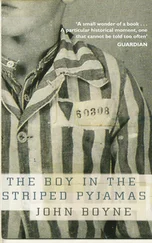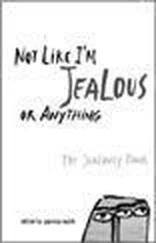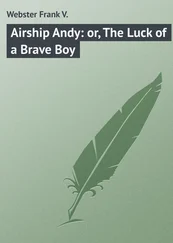That afternoon while the Army of the Tennessee was celebrating victory and Independence Day both, a photographer — one of Matthew Brady’s — asked to take Jim’s picture. I was annoyed that he did not consider me an interesting subject for posterity. For a reason I could not explain, I longed to have myself copied onto a glass-plate negative. To have my light stored away — carried in his lumbering darkroom up north, as if I wanted to resist a destiny already shaped for me, like an inheritance too onerous to accept. In that brief moment in which I sought to burn my image onto the negative, directly, without the intermediary of a lens, I matched my will against a stronger one, and failed.
“Step away, boy,” the photographer ordered from inside the camera’s black drape.
“Why not me?” I wanted to ask. “Why them and not me?” I gazed at a sullen heap of dead men, whom a variety of cruel deaths had made anonymous. I’d watched him take satisfaction in photographing them. They had no more interest for the eye than sacks of feed, although, in their perfect stillness, they had been accommodating subjects during the long exposure when they gave up the remnant particles of light. They would go underground in total darkness. But I knew the cameras that harvested in the sorrowful aftermath of that most uncivil strife were greedy for what still moved, as well as for what would never move again.
Then why not Huck?
“Clear out of the way!” he shouted at me, so that his camera might devour Jim alone.
I backed into the shadow of one of the white tents that dotted the hills like new lambs among the red placentas announcing their recent arrival. But here the scene was other than pastoral, and men leaned against rifles instead of shepherds’ crooks. Inside the tent, I felt myself swallowed by silence. When my eyes adjusted to the dark, I saw around me, neatly laid out, a row of dead Union soldiers waiting to be collected. . to be sent on. I rifled their pockets.
Later, when we were back on the raft, drifting south toward Natchez, I showed Jim what I’d taken to be added to the valuables: a pocketknife, a buckeye nut believed to strengthen virility, a signal mirror, chewing tobacco, a black-bound testament, a bundle of letters tied with a ribbon, a rosary, a photograph of a bride and a groom glaring in mutual accusation, a hank of chestnut-colored hair, a woman’s ivory comb, a jaw harp, and a heavy key such as might have locked its owner for all eternity inside his sepulchre.
“It’s wrong to rob the dead, Huck,” Jim said softly. “But I suppose you had no choice. It’s your nature, which was given to you. You’re too weak to fight against its demands. You are like a fish hauled up out of the life you had believed to be your own.”
“Do you believe in free will, Jim?”
“Is there a more ridiculous question to ask a slave?” he said, laughing.
And for a moment, I hated him.
BELOW NATCHEZ, AT RED RIVER LANDING, the Mississippi divides for the space of a small island near the middle of the river. As we swept toward it, we were hailed by a soldier who, along with his captive, had waded onto the islet’s gravel beach from a sandbar where their skiff had run aground. The other man was Choctaw and looked as if, in better days, he might have been a chief or a shaman. He had remnants of what must have been a lordly dignity, although it was worn to rags by misery and sorrow. I didn’t admire him for his suffering or for the obvious contempt with which he viewed his captor. If anything, I felt resentment toward him, which I didn’t bother to understand. The day was hot, the yellow beach stifling. Unlike the soldier, who had rightly found himself shade, the Choctaw stood in the sun, as though it were only another insult to be borne.
“I should have taken the ferry, up above the reach,” said the soldier, cursing his misfortune, which he attributed to the entire race of red men. “I lost the oar halfway across and nearly drowned myself in the goddamned river. Lucky for me, the boat ran up on the bar.”
I could see that Jim was hesitating to take them aboard, in case they should be struck dead as soon as they touched the raft. He had speculated that the raft was a charmed space where we were kept unspoiled and unchanged, like fresh meat in an icehouse. But the raft could have the opposite effect on anybody else. I whispered to him from behind my hand that he should chance it. Frankly, I always did have a scientific inclination and thought the experiment worth the risk. Jim agreed, but I noticed that he took the soldier aboard first. I thought it was natural for Jim to favor the Indian, since they were both members of a despised race. The soldier got aboard with no harm coming to him, and the Indian followed wordlessly.
“I’m taking this old bag of bones back across the river to Indian Territory,” said the soldier, letting river water run out of his boots. “Son of a bitch up and left without permission so that he could die in his ancestral homeland. Not that he would have gotten it. These good-for-nothings think they can lie down and expire anyplace they feel like. He claimed a railroad track ran across his tribal burial ground, and he had made himself a little place to rot, in plain sight of a train crammed full of congressmen. They were going to visit some Civil War battlefield or other, as if there wasn’t one they could have paced closer to Washington. Self-righteous pissants raised a holy stink when they saw the chief. They didn’t think a dying Indian, or even a dead one, added much to the scenery. This here Hiawatha is about as picturesque as mattress ticking left out in the rain. We’d just as soon have shot him and tossed his heathen bones into a sinkhole, but the bastards said they couldn’t allow such infamy, not in the year of our Lord 1873. So I was ordered to take ‘Cochise’ back to his reservation — at the army’s expense and my own considerable inconvenience.”
The soldier glared at the Indian, whose eyes remained unwaveringly on his, registering in their dark depths nothing I knew how to read.
“I suppose I should thank you boys for stopping for me.”
Jim spoke of providence and the sparrow as he swept the long oar back and forth in the heavy current; the soldier, of the pleasures of drink, beseeching us with greedy eyes to give him some of our whiskey. I spoke of the river’s difficult navigation; and the Indian, of nothing at all.
In those days, I didn’t much care for Indians. Injun Joe had colored my opinion of them, so that I believed they were, one and all, no better than cutthroats and drunken renegades. But when the old man slipped over the side of the raft and, having made himself a quiet little hole, sank down under the water, I thought a Christian and a gentleman could not have died more politely and more conveniently. I was feeling so favorably disposed toward him (I never did learn his name — Christian or otherwise) that I said not a word to the others until we’d crossed to the Mississippi’s western bank.
I was tempted to return to the island. I liked how the water seemed to shape itself around it and wondered if a life there might not shape itself around me, granting me rest from our hectic journeying toward an end that had not yet announced itself. Neither Jim nor I had given any thought to a destination, trusting ourselves to the river — its will and deeper knowledge.
I did not know what I wanted. Now, at a moment distressingly near my last, I’m not sure I ever knew — not even when I’d gotten my hands on what passes for the world’s exuberant bounty. Many years after I’d left the raft, I realized most of the dreams of a river rowdy, of a sneaking and thieving no-account boy. I had money, cars, women, a home not far from the ocean. Tom said that what a boy wanted was glory. I never heard him say what it was a man wanted. Not glory, surely. Maybe not even adventure, for glory and adventure stale. Love? Having known it only once, I’m not the best judge. Jim and I — maybe all we wanted was to fall, not from any height, but as a bird does, scudding headlong above the river in defiance of gravity, hoping to be saved from the terrible effort of resolve. I told you what Jim and I wanted was freedom, but I’m not certain anymore if we did. It’s hard to live a purposeful life.
Читать дальше
